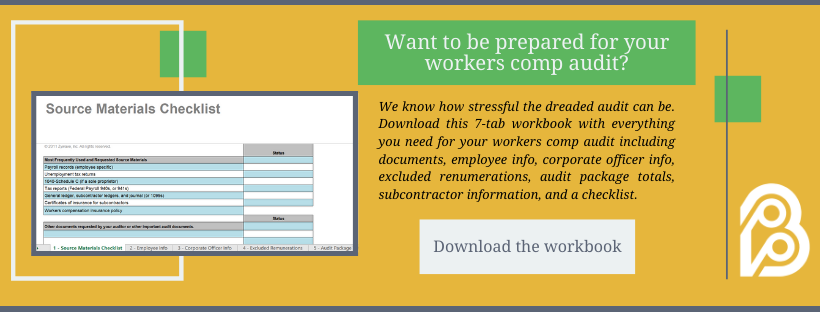Employers Liability Insurance vs. Workers’ Compensation Insurance
Employers’ liability and workers’ compensation: what’s the deal? Do they mean the same thing? Do I need both?
You’ve probably heard the terms used together – maybe even interchangeably. So it makes sense if you’re a little confused.
Employers’ liability and workers’ comp work together, and are often grouped together on the same policy, yet they serve different purposes.
At Berry Insurance, we provide both of these types of coverages to hundreds of commercial clients. We’ve also found ourselves explaining the difference between the two terms on several occasions.
So in this article, we’ll explain employers’ liability insurance, workers compensation insurance, what they cover, and if you need them.
Table of contents:
- What is workers' compensation insurance?
- What is employers’ liability insurance?
- Do I need both employers’ liability and workers’ comp?
What is workers’ compensation insurance?
Chances are, you are more familiar with the term workers’ compensation than you are with employers’ liability.
Workers’ compensation insurance covers medical payments and a portion of lost wages for employees who become injured or ill due to work-related causes.
For example, if an employee gets injured lifting something heavy or slipping and falling on a wet floor, medical expenses and some lost wages would be covered by workers’ compensation. Or, if an employee becomes ill from being exposed to harmful chemicals on the job, that would also be covered by the insurance.
Like every other form of business insurance, workers’ compensation insurance has a list of conditions and exclusions. Here is what you can generally expect to be covered (and not covered) by a workers’ compensation policy:
What is typically covered under workers’ comp:
- Injuries to all employees regardless of hours worked
- Medical expenses
- Lost wages (limited)
- Ongoing care expenses
- Funeral expenses
- Treatment for work-related illness
- Repetitive injury care
- Disability benefits (limited)
- Employer liability
What is not typically covered:
- Small cuts/scrapes remedied by a first aid kit
- Injuries sustained outside the scope of work
- Injuries to individuals that are not your employees
- Out of state operations (optional)
What is employers’ liability insurance?
While similar, employers' liability is a little bit different than workers’ compensation.
The coverage protects employers from lawsuits from employees who feel their workers’ compensation claims didn’t provide enough coverage.
Keep in mind: these types of claims must be specifically related to work-related injuries. For coverage against lawsuits related to issues such as discrimination, sexual harrassment, wrongful termination, or other HR issues, you would need Employment Practices Liability insurance (EPLI).
When an employee experiences a work-related injury or illness, workers comp comes in to cover medical expenses. However, if the employee feels the workers’ compensation payout wasn’t adequate, they may decide to sue their employer.
That’s where employers’ liability insurance comes in. It covers expenses related to those employee lawsuits.
If you read the workers’ compensation coverage bullets above, you may have caught something. “Employer liability” is actually covered by workers’ compensation.
That’s right, employers’ liability coverage is included in most workers’ compensation policies. Actually, it is often referred to as “part 2” of a workers’ comp policy, with the traditional workers’ comp coverage as part 1.
What is typically covered under employers’ liability:
- Court fees and settlements
- Lawsuits from employees with work-related injuries or illnesses
- Third party lawsuits related to employees with work-related injuries, illnesses, or death
Some exclusions include:
- Small cuts/scrapes remedied by a first aid kit
- Injuries sustained outside the scope of work
- Injuries to individuals that are not your employees
- Injuries or illnesses related to criminal activity
- Employers who intentionally cause injury or illness
Do I need both employers’ liability and workers’ comp?
In Massachusetts, all employers must purchase workers’ comp for all employees, whether part-time, full-time, etc. If an independent contractor is under an employer’s “direction and control” they most likely will be considered an employee, and thus covered by the employer.
So if you are a MA employer of any kind, yes, you need workers’ compensation.
But what about employers' liability? As we mentioned above, in most cases employers’ liability is just a coverage within workers’ comp.
So the good news is: whether or not you could ever imagine an employers’ liability claim happening to you, you are automatically covered under your workers comp – you don’t even need to consider whether or not you want the coverage!
Let your workers’ compensation insurance agent manage the complex details
Workers’ comp, employers’ liability … we understand how things can get confusing.
That’s why you should have an experienced workers’ comp insurance agent to help you navigate these convoluted terms, as well as all the other confusing aspects of your workers’ comp policy. A good agent can help you effectively manage your policy, which could save you thousands of dollars over time.
To learn more about what you deserve in a workers’ comp insurance agent, check out this article: 7 Things your Workers’ Compensation Insurance Agent Should be Doing for You.


.jpg)
